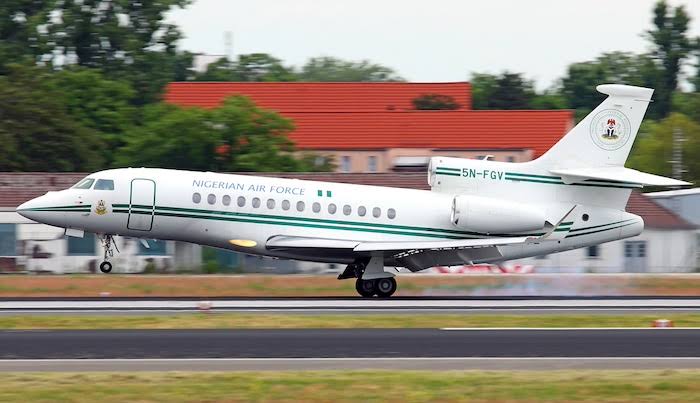INTRODUCTION
Recent reports indicate that three of Nigeria’s presidential jets have been seized in France following a court order issued by the Paris Court of Justice. This legal action stems from the enforcement of an arbitral award in favor of a Chinese company, rendered by a London seated arbitration tribunal in 2021. The Chinese company has pursued the enforcement of this award across multiple jurisdictions, raising significant concerns both domestically and internationally.
This article seeks to provide a comprehensive analysis of the circumstances that led to the possible seizure of Nigeria’s presidential aircraft in France, as well as the broader implications of ongoing efforts to target other assets belonging to the Federal Government of Nigeria in various jurisdictions.
FACTS OF THE CASE
In the international arena, countries frequently enter into bilateral agreements to bolster their economies and reap a wide array of benefits, such as job creation, technology transfer, infrastructural development, and enhanced competition. It was on this basis that the Federal Republic of Nigeria and the People’s Republic of China executed the “Agreement between the Government of the People’s Republic of China and the Government of the Federal Republic of Nigeria for the Reciprocal Promotion and Protection of Investments,” herein after referred to as “the treaty” in 2001.
Pursuant to this treaty, a Joint Venture Agreement (JVA) was executed on June 28, 2007, between Ogun State (a constituent unit of the Federal Republic of Nigeria), Guandong Xing Guang International, China-Africa Investment Ltd (CAI), and CCNC Group Ltd (CCNC). The JVA centered on the management and development of the Ogun Guangdong Free Trade Zone located in Ogun State, Nigeria. The development of the zone was undertaken through the Ogun Guangdong Free Trade Zone Company (OGFTZ), a joint venture owned by Ogun State, CCNC, and CAI.
In 2010, faced with a funding shortfall, CAI introduced Zhuhai as a potential investor, developer, and manager to Ogun State. Consequently, Zhuhai and OGFTZ entered into a
“Framework Agreement on the Establishment of Fucheng Industrial Park in the Zone.” Subsequently, all of Zhuhai’s duties and obligations were transferred to Zhongshan under a
“2010 Framework Agreement” dated October 10, 2010. By April 2012, Nigeria Export Processing Zones Authority (NEPZA) approved the appointment of Zhongfu (a subsidiary of Zhongshan) as the interim manager/administrator of the zone. This arrangement was made permanent on September 28, 2013, when Zhongfu, Ogun State, and Zenith Global Merchant Limited entered into a Joint Venture Agreement for the development, management, and operation of the zone. The JVA contained a termination clause, Clause 27, which stipulated that in the event of a dispute, and if the parties failed to reach an amicable resolution, the matter would be referred to arbitration under the UNCITRAL Rules in Singapore, under the aegis of the Singapore International Arbitration Centre.
However, between April and August 2016, the Ogun State Government issued several letters to Zhongshan’s management, demanding that they withdraw from the project to avoid forcible removal and potential prosecution. In August 2016, personnel associated with Zhongshan were arrested, subjected to maltreatment, and tortured while in police custody.
In response to these events, Zhongfu-Zhongshan initiated proceedings at the Federal High Court of Nigeria, seeking declaratory and injunctive reliefs, among other remedies.
Unfortunately, these proceedings were discontinued, rendering the efforts unsuccessful. Consequently, Zhongfu-Zhongshan commenced arbitration proceedings against Ogun State and Zenith Global Merchant Limited pursuant to Clause 27 of the JVA. In turn, Zenith filed an application at the Ogun State High Court for an injunction to restrain the arbitration proceedings. The court granted the injunction on the grounds that Nigeria had a substantial connection to the arbitration, making Nigeria—not Singapore—the proper seat of arbitration. Additionally, the court held that the initiation of proceedings at the Federal High Court constituted a waiver of the right to arbitrate.
On August 30, 2018, Zhongshan served a request for arbitration on the Federal Republic of Nigeria, pursuant to Article 9 of the “Agreement between the Government of the People’s Republic of China and the Government of the Federal Republic of Nigeria for the Reciprocal Promotion and Protection of Investments.” Zhongshan contended that the actions taken by the Federal Republic of Nigeria between April 2016 and August 2016 were in breach of its obligations under the treaty, and it sought compensation, interest, and costs.
The seat of arbitration was London, and on March 26, 2021, the arbitral tribunal rendered an award in favor of Zhongshan. The tribunal concluded that the actions of Ogun State,
Nigeria Export Processing Zones Authority, and the Nigerian Police Force between April and August 2016 constituted violations of Nigeria’s obligations under the treaty and
infringed Zhongshan’s rights. Relying on the assessments of an expert submitted by Zhongshan, the tribunal awarded $55,600,000 (fifty-five million, six hundred thousand
dollars) as compensation for expropriation, $75,000 (seventy-five thousand dollars) as moral damages, with a monthly interest at the USA LIBOR rate plus 2% per annum, and
costs of arbitration amounting to 2,864,444.74 (two million, eight hundred sixty-four thousand, four hundred forty-four pounds and seventy-four pence) with a monthly interest
at the GBP LIBOR rate plus 2% per annum. The Arbitration award has resulted in court actions in several jurisdictions against the Federal Government by the Zhongshan for
enforcement.
THE COURT DECISIONS IN MOST JURISDICTIONS.
It is well known that the Chinese firm, Zhongshan Fucheng Industrial Investments, has initiated legal actions in multiple jurisdictions to enforce the arbitral award. Notably, despite the Federal Government’s invocation of sovereign immunity as a defense, the courts have consistently ruled in favor of the Chinese investment firm. It is on the basis of the facts above that Zhongshan Fucheng Industrial Investment Co. Ltd has sought to enforce the arbitral award across various jurisdictions, with the most recent enforcement action taking place in France. These actions raise several important jurisprudential questions.
1. The Jurisdiction of National Courts to Enforce Arbitral Award Against Sovereign Entities: To what extent do national courts possess the authority to enforce arbitral awards against sovereign states, particularly in light of principles such as sovereign immunity.
2. The Legality of Enforcing the Same Arbitral Award Across Multiple Jurisdictions: Is it legally permissible for Zhongshan Fucheng Industrial Investment Co. Ltd to pursue the
enforcement of the same arbitral award in different jurisdictions, and does it amount to forum shopping.
THE JURISDICTION OF NATIONAL COURTS TO ENFORCE ARBITRAL AWARDS AGAINST SOVEREIGN ENTITIES
In recent years, the interplay between sovereign immunity and the jurisdiction of national courts to enforce arbitral awards against sovereign entities has garnered significant attention. This dynamic was particularly highlighted in the series of cases initiated by Zhongshan Fucheng Industrial Investment Co. Ltd. (Zhongshan) against the Federal Republic of Nigeria across various jurisdictions. The core legal question addressed by these courts was whether they possessed the jurisdiction to adjudicate claims against a sovereign state, thereby piercing the veil of sovereign immunity.
Sovereign immunity is a well-established legal doctrine that shields states and their properties from legal proceedings and enforcement actions in foreign courts. This principle is rooted in the notion that a sovereign state cannot be subject to the jurisdiction of another state’s courts without its consent. However, under international law and various national statutes, exceptions to this rule exist, particularly in the context of commercial transactions and arbitration.
Canda
In Canada, Zhongshan filed an ex parte application before the Superior Court of Quebec, seeking to seize certain assets belonging to Nigeria, specifically:
- 1. A Bombardier 6000 Jet (type BD-700-1A10) registered with the Isle of Man Aircraft Registry.
- 2. Any proceeds from the sale or transfer of the aircraft.
- 3. The aircraft’s logbook.
The court’s decision was heavily influenced by the provisions of the Canadian State Immunity Act, particularly sections 3, 4, 5, and 12, which outline the exceptions to sovereign immunity concerning the seizure and attachment of foreign state properties. The court ruled in favour of Zhongshan, holding that the properties in question fell within the statutory exceptions, thereby permitting their seizure.
United Kingdom
In the United Kingdom, Zhongshan sought a final charging order against two properties owned by Nigeria:
- 1. 15 Aigburth Hall Road, Liverpool, valued at approximately 1.3 million (One Million Three Hundred Thousand Pounds).
- 2. Beech Lodge, 49 Calderstones Road, Liverpool, valued at approximately 1.7 million (One Million Seven Hundred Thousand Pound).
Nigeria contended that these properties were intended for consular and public purposes, which under Section 13 of the State Immunity Act 1978, would exempt them from enforcement actions. Relying on a certificate as evidence, Nigeria argued that these properties should be protected under the doctrine of sovereign immunity given their intended purpose. However, Zhongshan presented evidence that the properties were currently leased to ordinary residents and had not been used for consular purposes for over three decades. The court adopted a pragmatic approach, focusing on the “purpose for which the property is in use or intended for use at the time of the application.” It found that the properties were being used for commercial purposes, thus falling within the exception under Section 13(4) of the Act and granted Zhongshan’s application .
United States
In the United States, Zhongshan sought to enforce the arbitral award in the District Court for the District of Columbia. The court ruled that it had jurisdiction under the Foreign Sovereign Immunities Act (FSIA), particularly under the arbitration exception provided in Section 1605(a)(6). This section stipulates that a foreign state is not immune from the jurisdiction of U.S. courts in cases where the action is brought to confirm an arbitral award governed by a treaty, such as the New York Convention .
On appeal, the U.S. Court of Appeals affirmed the lower court’s decision, emphasizing three key factors:
- 1. The existence of a valid arbitration agreement.
- 2. The issuance of a binding arbitral award.
3. The applicability of the New York Convention as the governing treaty.
The court rejected Nigeria’s argument that the commercial reservation under the New York Convention was limited to arbitral awards arising from direct transactions between a state and a private party . However, the court held that the investment treaty created a commercial relationship between Nigeria and Zhongshan, a third-party investor, which was sufficient to satisfy the commercial reservation requirement. The court also dismissed Nigeria’s contention that sovereign states are not “persons” within the meaning of the New York Convention, affirming that the Convention’s provisions do not exclude states acting in a commercial capacity.
France
Zhongshan also sought enforcement of the arbitral award in France, filing an ex-parte application for the temporary attachment of three presidential jets belonging to Nigeria,
parked at Paris-Le Bourget and Basel-Mulhouse airports:
- 1. Dassault Falcon 7X.
- 2. Boeing 737-7NG/BBJ.
- 3. Airbus A330-243
The French court, presumably relying on similar principles as those applied by the courts in Canada, the United Kingdom, and the United States, granted Zhongshan’s application,
allowing the temporary attachment of the jets.
THE LEGALITY OF ENFORCING THE SAME ARBITRAL AWARD ACROSS MULTIPLE JURISDICTIONS
The issuance of an arbitral award often marks the conclusion of arbitral proceedings, yet it simultaneously initiates a potentially protracted enforcement phase, especially when dealing with non-domestic awards. The New York Convention on the Recognition and Enforcement of Foreign Arbitral Awards (1958) was established to facilitate the enforcement of such awards and to underscore the importance of arbitration in resolving international disputes. Under the Convention, an award creditor is entitled to seek enforcement in multiple jurisdictions if the award debtor fails to comply with the arbitral award. This framework is the cornerstone of international arbitration, ensuring that arbitral awards can be enforced globally, thus providing a robust mechanism for the resolution of cross-border disputes.
However, the ability to enforce the same award across different jurisdictions raises concerns about potential forum shopping and inconsistent judicial interpretations. Although these concerns are valid, the law permits the award creditor multiple enforcements, while the New York Convention provides a uniform legal standard, national courts retain some discretion in interpreting the Convention’s provisions, leading to variations in enforcement outcomes.
SANCTITY OF CONTRACTS
The recurring issue of Nigeria’s failure to honour to foreign contracts demands critical attention, particularly as this is not an isolated incident of the country’s entanglement in
breaches of contract, which invariably bring disrepute. The case of Process and Industrial Developments LTD (P&ID) remains vivid in the collective memory of many Nigerians.
Fortunately, the nation narrowly averted the enforcement of an arbitral award that could have severely drained the federal treasury.
It is imperative to underscore, yet again, that a fundamental tenet of contract law, universally acknowledged across all jurisdictions, is the inviolability of a contract by the parties bound to it. The sanctity of this elementary principle was emphatically upheld by the Nigerian Supreme Court in Okechukwu v. Onuorah , where it was stated:
faithfully and honestly. Parties who enter into a contract are expected to honour its terms. A party who induced the other party to enter into a contract, which provides benefits for the other party which he utilized without complaint, cannot subsequently deny the validity of that contract.
The Supreme Court’s position is reflective of the legal and moral expectations within and beyond Nigeria. It is both ethically indefensible and legally untenable for parties to renege on agreements they willingly entered into without substantial justification.
Nigeria has unfortunately gained notoriety for breaching national and international contracts to which it is a signatory. This recurring breach undermines the country’s reputation but also positions it as an unreliable destination for investment. Such perceived unreliability deters potential investors, thereby stunting economic growth and development.
To reverse this narrative, it is crucial for government entities at all levels to exhibit a genuine commitment to honoring agreements, fully aware of the potential repercussions of noncompliance. Additionally, the engagement of legal practitioners with expertise in international investment law is essential. Such professionals would ensure that the government is fully informed and legally safeguarded before entering any contractual obligations, thereby promoting a more reliable and investment-friendly environment in Nigeria.
CONCLUSION
In conclusion, the cases involving Zhongshan, and the Federal Republic of Nigeria illustrate the complex interplay between sovereign immunity and the jurisdiction of national courts in the enforcement of arbitral awards. Although sovereign immunity remains a fundamental principle of international law, exceptions exist, particularly in the context of commercial transactions and arbitration. It is indeed pertinent that Nigeria proactively seeks out wellinformed experts in international investment and commercial law when engaging in the execution of commercial contracts. The involvement of such experts will ensure that all agreements are meticulously vetted, reducing the risk of future breaches, these authors urge Nigerian leaders to proactively review existing international commercial contracts with the guidance of legal experts to prevent potential breaches. Furthermore, it is essential that Nigerian leaders cultivate and uphold a culture of integrity in all contractual relationships. Adherence to the principles of good faith in these dealings will not only enhance the country’s reputation but also foster an environment conducive to attracting and sustaining foreign investment.
BIBILOGRAPHY
CASE LAW
Okechukwu v. Onuorah (2000) 5 NWLR (Pt. 691) 597.
Z h o n g s h a n F u c h e n g V . F e d e r a l R e p u b l i c o f N i g e r i a < https://jusmundi.com/fr/document/decision/en-zhongshan-fucheng-industrial-investmentc o – l t d – v – f e d e r a l – r e p u b l i c – o f – n i g e r i a – f i n a l – a w a r d – m o n d a y – 1 s t – march2021#decision_17721> accessed 20th of August 2024
Zhongshan Fucheng Industrial Investment Co L.T.D v. The Federal Republic of Nigeria accessed 20th August 2024
WEBSITE Adeleke Alade “JUST IN: Chinese Firm Releases Seized Presidential Jet for Tinubu’s France Trip” (Punch, 16th August 2024) accessed 22nd August 2024.





I don’t care and don’t wanno care about whosoever an Ancient Monster and Murderer Bola Tinubu is but elated to drop this message to him. Wit Mr murderer Bola Tinubu that nothing on earth in this world shall and would stops Nigeria division.
God bless
UNITED STATES OF SOUTH SOUTH FEDERATION